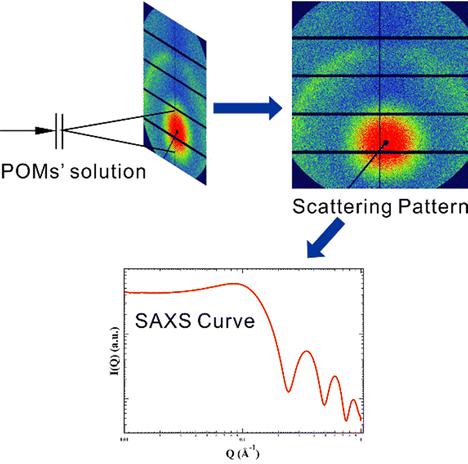The applications of small-angle X-ray scattering in studying nano-scaled polyoxometalate clusters in solutions
Mu Li1,2, Mingxin Zhang1,2, Weiyu Wang1,2, Stephen Z. D. Cheng1,2,3, Panchao Yin1,2 ![]()
South China Advanced Institute for Soft Matter Science and Technology, South China University of Technology, Guangzhou, People’s Republic of China
State Key Laboratory of Luminescent Materials and Devices, South China University of Technology, Guangzhou, People’s Republic of China
Department of Polymer Science,The University of Akron, Akron, USA
J. Nanopart. Res., 2018, 20: 124
DOI: 10.1007/s11051-018-4216-4
Publication Date (Web): April 30, 2018
Copyright © # Springer Science+Business Media B.V., part of Springer Nature 2018
*E-mail: scheng@uakron.edu; yinpc@scut.edu.cn

Nano-scaled polyoxometalates (POMs) clusters with sizes ranging from 1 to 10 nm attract tremendous attention and have been extensively studied due to POMs’ fascinating structural characteristics and prospects for wide-ranging applications. As a unique class of nanoparticles with well-defined structural topologies and monodispersed masses, the structures and properties of POMs in both bulk state and solutions have been explored with several well-developed protocols. Small-angle X-ray scattering (SAXS) technique, as a powerful tool for studying polymers and nanoparticles, has been recently extended to the investigating of solution behaviors of POMs. In this mini-review, the general principle and typical experimental procedures of SAXS are illustrated first. The applications of SAXS in characterizing POMs’ morphology, counterion distribution around POMs, and short-range interactions among POMs in solutions are highlighted.

